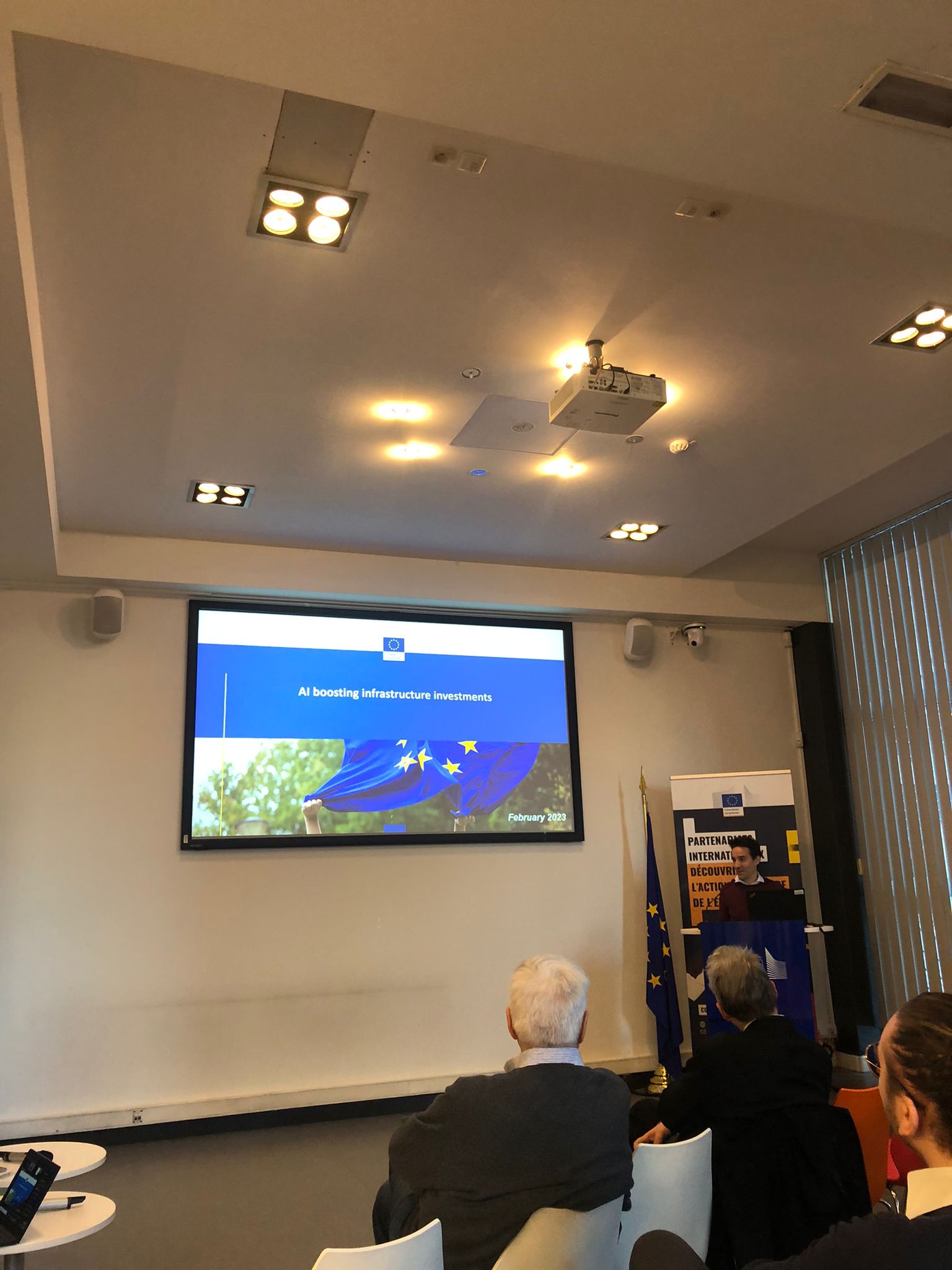On Wednesday 09 of 2023, the InfoPoint Hybrid Conference: "Artificial intelligence for boosting investment in infrastructures and entrepreneurship in Africa" took place in Brussels.

Miguel Roman - entrepreneur and artificial Intelligence scientist- started by explaining what AI is, he defined it as part of computer science that mimics human behavior. He put emphasis on how it has helped all sectors and how software is “eating the world” and therefore we have to adapt everything. However, he also exposed some of its main risks, pointing out the AI-tech wars that are emerging nowadays to control the system. Roman explained how close AI intelligence is to human intelligence and some of the applications that can have, including tabular data, creation and understanding of images, languages, etc. In regards to AI opportunities in Africa, he exposed that there are many sectors where AI could be used such as agriculture, education, healthcare, farming, and many others. He gave 3 examples of different startups that are using AI intelligence for the better of the society:
- Zenvus: Provides more data to farmers in order for them to predict
- Babyl: Provides health care assistance through a chat
- M-Shule: Is helping with education programs
Following the same narrative, Juan Arelavo - entrepreneur and data scientist - presented how AI can support infrastructure investments by optimizing investment decisions, improving maintenance, automating routine tasks for project management, and reducing risks. He exposed that 90% of the startups in Africa are using AI as core tech. He also presented a Case study in Mozambique on a Broadband mapping system that the European Commission released, in order to found which re the main areas that have to be invested in for digital transformation. He ended by saying that the EU Commission is very active in AI regulations and how to train people, showing them both the opportunities and the risks, in the EU and partner countries in order not to make them lose jobs.
From another perspective Mihajela Črnko - International Research Centre on Artificial Intelligence under the auspices of UNESCO- talked about the work of IRCAI. Črnko shoed that IRCAI has scientific programs, financing programs, capacity-building programs, and verification programs and that the main focuses of all of them are intersectionality, credibility, and gender. Within their research they acknowledge some of the main issues that AI can bring to Africa, starting from the breach that can bring between developed and developing counties. They also realized that there is a few representations in the continent and therefore some measures have to be implemented. However, they also found out that there are many new AI initiatives and some bottom-up AI communities that are growing up in Africa in recent years such as Deep Learning Indaba. She explained IRCAI’s continuous involvement with African partners and their plan for 2023-2024 which is about setting up an incubator that would scale the AI solutions that they have identified in their partnership, especially across Sub-Saharan Africa. She also showed some of the previous projects that they did in 2021 in Ethiopia, Senegal, and Morocco.
The session closed with a round of questions and answers that raised awareness on how relevant is digital transformation to implementing all AI tools.




